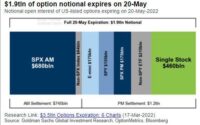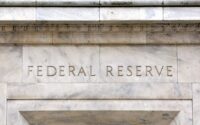Russian rouble plunges to new low in Moscow, stays even weaker abroad
(Reuters) – The rouble plunged to a record low in Moscow of 110 to the dollar on Wednesday and the stock market remained closed as Russia’s financial system staggered under the weight of Western sanctions imposed over Moscow’s invasion of Ukraine.
The rouble was 7.3% weaker on the day at 108.60 against the dollar as of 0941 GMT in Moscow trade, earlier hitting 110.0, an all-time low. It has lost about a third of its value against the dollar since the start of the year.
It had shed 7.1% on Wednesday to trade at 120.50 to the euro.
For the third day in a row, the rouble was weaker outside Russia, trading at 115 to the dollar on the EBS electronic trading platform, but still off the all-time low of 120 hit on Monday.
Russia has responded by doubling interest rates to 20% and telling companies to convert 80% of their foreign currency revenues on the domestic market as the central bank, or CBR, which is now under Western sanctions, has stopped foreign exchange interventions.
JP Morgan said there was a deep recession in the making for Russia and was re-assessing its regional macro forecasts.
“The most recent measures targeting the CBR have completely changed the picture,” JP Morgan said.
“Russia’s large current account surplus could have accommodated large capital outflows, but with accompanying CBR and SWIFT sanctions, on top of the existing restrictions, it is likely that Russia’s export earnings will be disrupted, and capital outflows will likely be immediate.”
Several Russian banks have been barred from the SWIFT global financial network that facilitates transfers between banks.
Moscow calls its actions in Ukraine a “special operation” that it says is not designed to occupy territory but to destroy its southern neighbour’s military capabilities and capture what it regards as dangerous nationalists.
As households and businesses in Russia have rushed to convert the falling rouble into foreign currency, banks raised rates for foreign currency deposits.
Russia’s largest lender Sberbank is offering to pay 4% on deposits of up to $1,000, while the largest private lender Alfa Bank is offering 8% on three-month dollar deposits. For rouble deposits, Sberbank offers a 20% annual return.
Sberbank said on Wednesday it was quitting almost all European markets, blaming big cash outflows and threats to its staff and property, after the ECB ordered the closure of its European arm.
The weak rouble will hit living standards in Russia and fan already high inflation, while Western sanctions are expected to create shortages of essential goods and services such as cars or flights.
(Reporting by Reuters; Editing by Andrew Heavens and Edmund Blair)
[ad_2]
Source link


